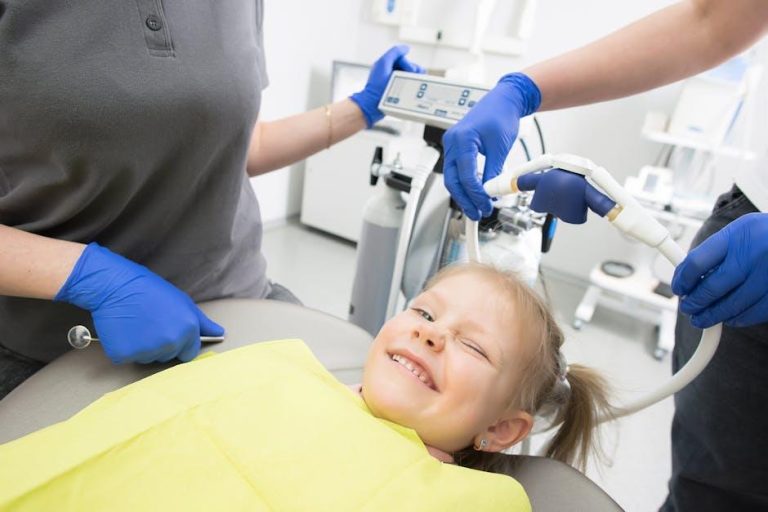1 in 3 Kids Has Dental Problems, Poll Finds – U.S. News & World Report
A recent poll cited by U.S. News & World Report unveiled a worrying statistic: 1 in 3 kids suffers from dental problems in the United States. Dental health is vital to children’s overall well-being, yet many face challenges like cavities, gum diseases, and other oral complications. This article explores the causes behind these dental problems, their impacts, and practical tips for parents to protect their children’s bright smiles.
Understanding the Scope: What the Poll Revealed
The poll surveyed thousands of American families with children under 18 and revealed that around 33% of kids have experienced dental problems ranging from minor cavities to more severe issues such as infections or tooth loss. This data highlights a significant public health concern, especially given how dental health affects children’s nutrition, self-esteem, and academic performance.
| Dental Issue | Percentage of Affected Kids | Brief Description |
|---|---|---|
| Tooth Cavities | 21% | Decay causing holes in teeth, often painful |
| Gum Disease | 7% | Inflammation and infection of gums |
| Tooth Sensitivity | 5% | Discomfort from hot, cold, or sweet foods |
Why Do So Many Kids Face Dental Problems?
Several factors contribute to the high prevalence of dental issues among children in the U.S. Understanding these can help parents and caregivers take proactive steps to reduce risks.
Common Causes of Children’s Dental Problems
- Poor Oral Hygiene: Irregular or ineffective brushing and flossing can lead to plaque build-up and cavities.
- High Sugar Intake: Excessive consumption of sugary snacks and drinks fuels decay-causing bacteria.
- Limited Access to Dental Care: Many families face financial or geographical barriers to regular dental check-ups.
- Lack of Education: Children and parents may not fully understand the importance of dental hygiene or the right techniques.
- Genetic Predisposition: Some kids are more prone to dental problems due to hereditary factors.
The Impact of Dental Problems on Children
Untreated dental issues can drastically affect a child’s quality of life. Here’s what dental problems can lead to:
- Chronic pain and discomfort, often resulting in irritability and trouble concentrating
- Difficulty eating and proper nutrition due to painful chewing
- Speech development challenges if front teeth are affected
- Lower self-esteem and social anxiety caused by visible dental problems
- Absences from school due to dental pain or treatment appointments
How to Prevent Dental Issues in Kids: Practical and Effective Tips
Prevention is key to ensuring a lifetime of healthy smiles. Parents and caregivers should consider these tips:
Top Dental Care Tips for Children
- Start Oral Care Early: Begin brushing your child’s teeth as soon as the first tooth erupts using a soft-bristled toothbrush and fluoride toothpaste.
- Regular Dental Visits: Schedule the first dental appointment by the child’s first birthday and follow up every six months.
- Healthy Diet Choices: Limit sugary snacks and beverages, adding tooth-friendly foods like cheese, yogurt, and crunchy vegetables.
- Proper Brushing Technique: Teach children to brush twice daily for at least two minutes, reaching all areas inside the mouth.
- Supervise Brushing: Children under 8 often need guidance to ensure thorough cleaning and safe toothpaste use.
- Use Dental Sealants: Ask your dentist about protective sealants that help shield teeth from cavities.
Case Study: How Early Dental Intervention Helped the Johnson Family
The Johnson family noticed their 6-year-old son, Ethan, complaining about tooth sensitivity. After their pediatrician recommended a dental check-up, they discovered multiple early cavities. Thanks to prompt treatment and a commitment to a structured oral hygiene routine—coupled with dietary adjustments—Ethan’s dental health improved significantly in six months. The family’s experience underscores the importance of vigilance and early professional care.
Benefits of Good Dental Health for Kids
When children maintain proper oral hygiene and avoid dental problems, they enjoy a range of benefits:
- Comfortable eating and better nutrition
- Clear speech development
- Improved self-confidence and positive social interactions
- Reduced risk of costly and painful dental treatments
- Long-term protection against chronic dental diseases
Frequently Asked Questions About Kids’ Dental Health
At what age should my child first visit the dentist?
It is recommended that a child sees a dentist by age 1 or within six months of the first tooth eruption.
How can I encourage my child to enjoy brushing their teeth?
Make brushing fun by using flavored toothpaste, letting them pick their toothbrush, and turning brushing into a game or song.
Is fluoride toothpaste safe for young children?
Yes, fluoride toothpaste is safe if used sparingly (a pea-sized amount) for children over 2. Always supervise young children while brushing.
Conclusion: Taking Charge of Your Child’s Dental Health Today
The alarming finding that 1 in 3 kids faces dental problems is a call to action for parents, educators, and healthcare providers alike. The good news is that many of these issues are preventable through consistent oral care, balanced nutrition, and early dental visits. By implementing the practical tips outlined here and understanding the causes and consequences of poor dental health, you can help your child build a foundation for a healthy smile that lasts a lifetime.
Remember, strong dental habits start early — so empower your children today for brighter, healthier tomorrows!


